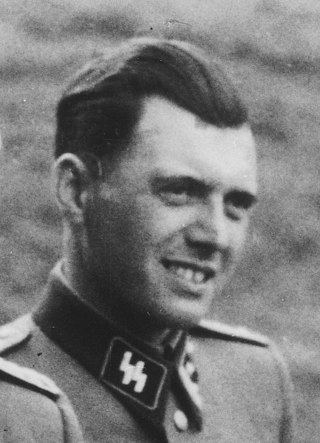
Josef Rudolf Mengele was a German Schutzstaffel (SS) officer and physician during World War II. Nicknamed the "Angel of Death", he performed deadly experiments on prisoners at the Auschwitz II (Birkenau) concentration camp, where he was a member of the team of doctors who selected victims to be murdered in the gas chambers, and was one of the doctors who administered the gas.
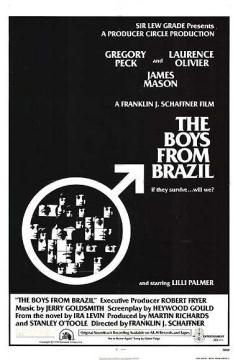
The Boys from Brazil is a 1978 science fiction thriller film directed by Franklin J. Schaffner. It stars Gregory Peck and Laurence Olivier, and features James Mason, Lilli Palmer, Uta Hagen, Anne Meara, Denholm Elliott, and Steve Guttenberg in supporting roles. The film is a British-American co-production, based on the 1976 novel of the same title by Ira Levin. It was nominated for three Academy Awards.
"Angel of Death" is the opening track on American thrash metal band Slayer's 1986 album Reign in Blood. The lyrics and music were written by guitarist Jeff Hanneman. They detail the Nazi physician Josef Mengele's human experiments at the Auschwitz concentration camp during World War II.
Angel of Death may refer to:

The Kaiser Wilhelm Institute of Anthropology, Human Heredity, and Eugenics was founded in 1927 in Berlin, Germany. The Rockefeller Foundation partially funded the actual building of the Institute and helped keep the Institute afloat during the Great Depression.

Otmar Freiherr von Verschuer was a German-Dutch human biologist and geneticist, who was the Professor of Human Genetics at the University of Münster until he retired in 1965. A member of the Dutch noble Verschuer family, his title Freiherr is often translated as baron.
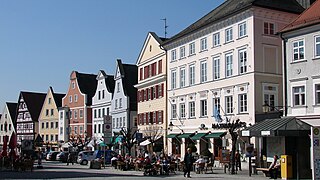
Günzburg is a town in Bavaria, Germany. It is a Große Kreisstadt and the capital of the Swabian district Günzburg. This district was constituted in 1972 by combining the city of Günzburg – which had not previously been assigned to a Kreis (district) – with the district of Günzburg and the district of Krumbach.

The Ovitz family was a family of Hungarian Jewish actors/traveling musicians originating from present Romania, who survived imprisonment at the Auschwitz concentration camp during World War II. Most of them were dwarfs. They were the largest family of dwarfs ever recorded and were the largest family to enter Auschwitz and survive intact; the family of twelve ranged from a 15-month-old baby to a 58-year-old woman.
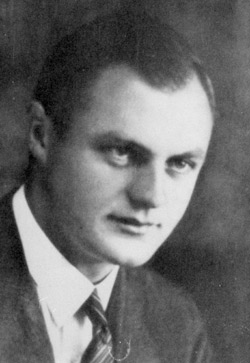
Eduard Wirths was the chief SS doctor (SS-Standortarzt) at the Auschwitz concentration camp from September 1942 to January 1945. Thus, Wirths had formal responsibility for everything undertaken by the nearly twenty SS doctors who worked in the medical sections of Auschwitz between 1942 and 1945.
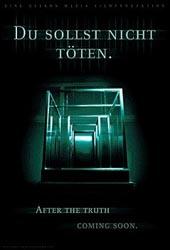
After the Truth is a 1999 German film depicting the fictional trial of Dr. Josef Mengele, known as the "death angel of Auschwitz". The film, starring Götz George as Mengele and Kai Wiesinger as his lawyer, is based on the original English-language screenplay by American writers Christopher and Kathleen Riley. The German title translates to "Nothing but the truth".

During the Holocaust, children were especially vulnerable to death under the Nazi regime. An estimated 1.5 million children, nearly all Jewish, were murdered during the Holocaust, either directly by or as a direct consequence of Nazi actions.
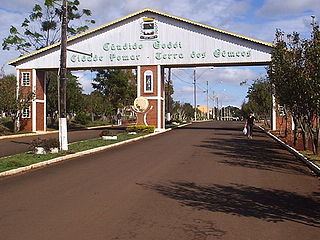
Cândido Godói is a municipality of 6,151 inhabitants in the state of Rio Grande do Sul, Brazil near the Argentine border, famous for the high number of twins born there. The twin phenomenon is centered in Linha São Pedro, a small settlement in the city of Cândido Godói, in an ethnically homogeneous population of German descent.

The Höcker Album is a collection of photographs believed to have been collected by Karl-Friedrich Höcker, an officer in the SS during the Nazi regime in Germany. It contains over one hundred images of the lives and living conditions of the officers and administrators who ran the Auschwitz-Birkenau concentration camp complex. The album is unique and an indispensable document of the Holocaust; it is now in the archives of the United States Holocaust Memorial Museum (USHMM) in Washington, D.C.

Germany–Paraguay relations are the diplomatic relations between Germany and Paraguay. Both nations enjoy friendly relations, the importance of which centers on the history of German migration to Paraguay. Approximately 300,000 Paraguayans claim German origin. Both nations are members of the United Nations.
Schönbein is a German surname. Notable people with the surname include:
The White Angel or White Angel may refer to:
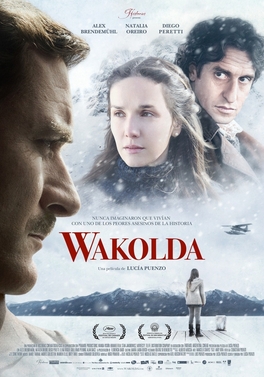
The German Doctor is a 2013 Argentine historical drama film directed, produced, and written by Lucía Puenzo, based on her own novel Wakolda (2011). The film stars Àlex Brendemühl as Nazi SS officer and physician Josef Mengele, infamous for performing human experiments in the Auschwitz concentration camp. It also stars Florencia Bado, Natalia Oreiro, Diego Peretti, Elena Roger, and Guillermo Pfening.

Olivier Guez is a French journalist, essayist and writer. He won the 2017 Prix Renaudot for his novel The Disappearance of Josef Mengele.
Mengel is a surname. Notable people with the surname include:

The Disappearance of Josef Mengele is a 2017 French non-fiction novel by Olivier Guez. It details the post-WWII life of Josef Mengele, the "Angel of Death" of Auschwitz, who was infamous for his experiments conducted on Auschwitz prisoners. Released in 2017, it won the Prix Renaudot and became a bestseller: As of 2022, at least 300,000 copies have been sold, and the book has been translated into at least 25 languages.














